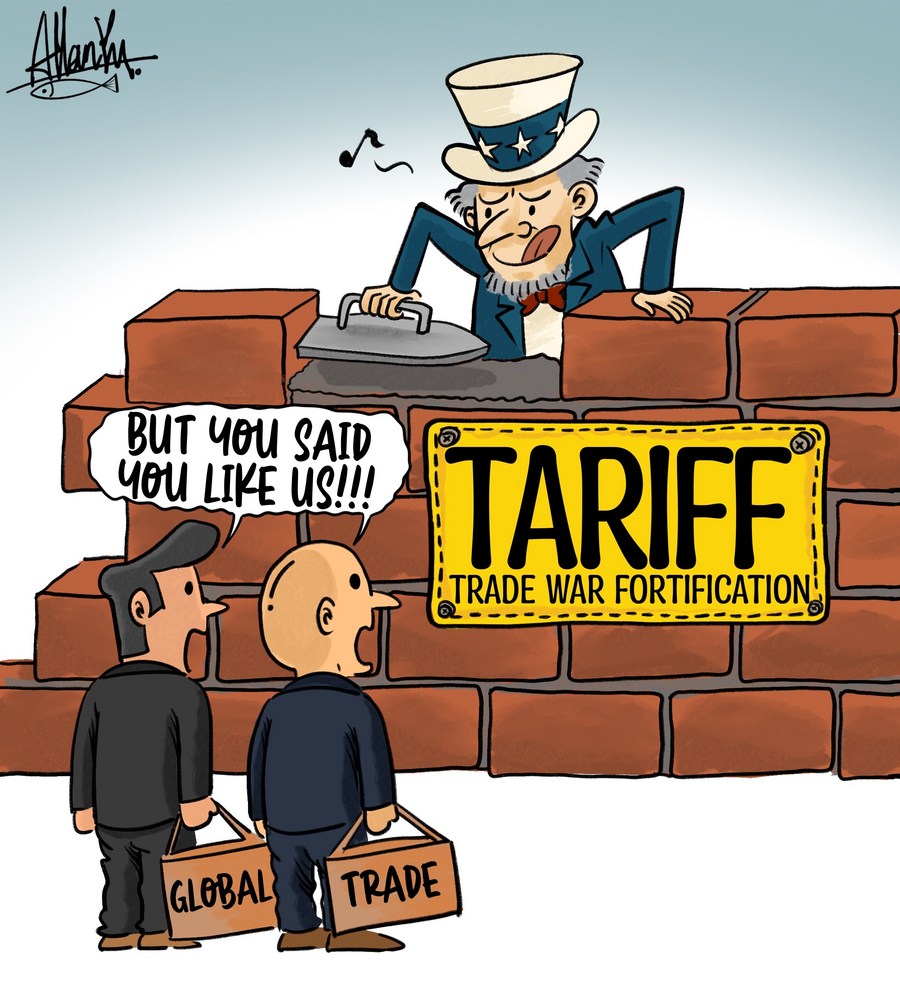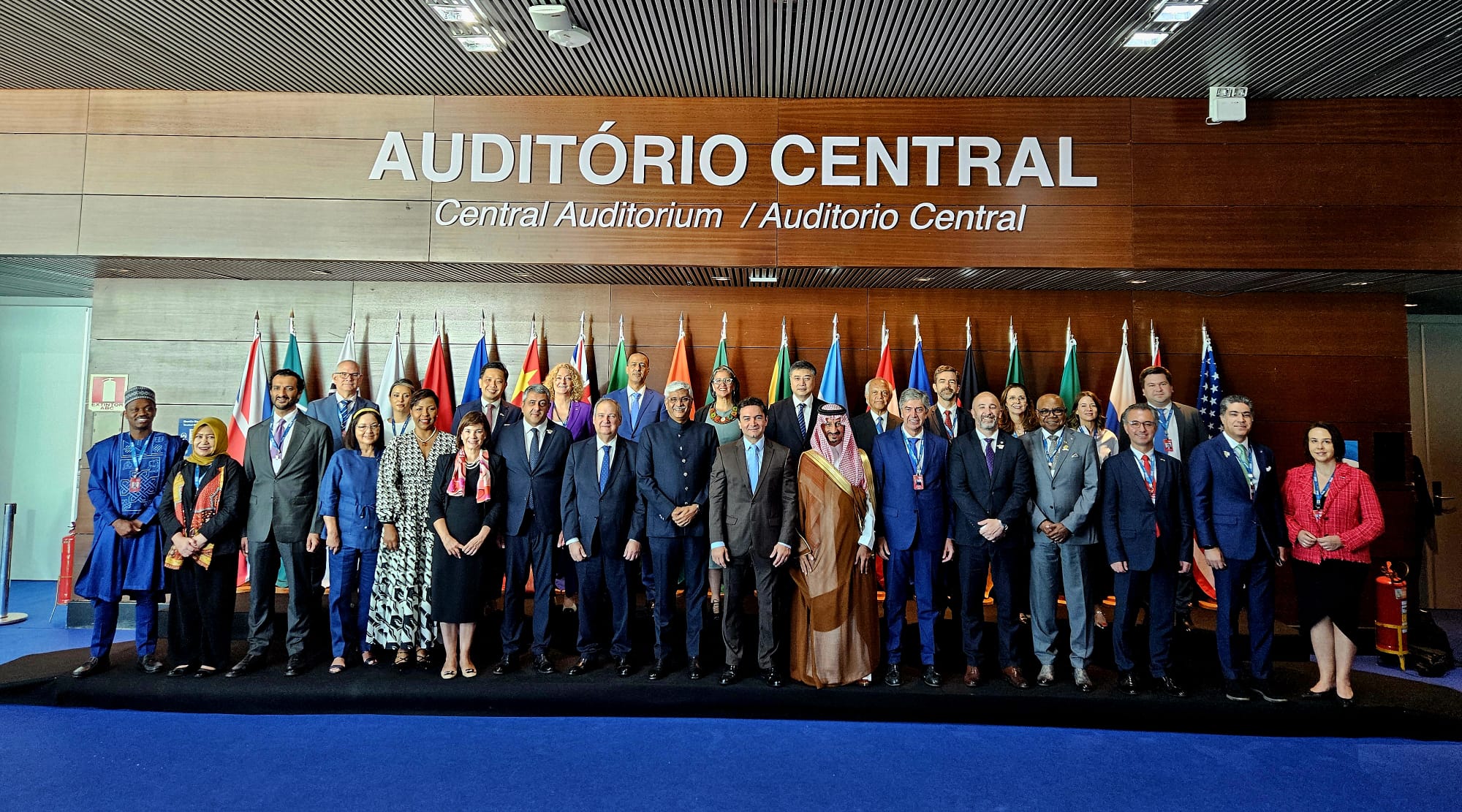Trump's Trade War: Senator Warner On The Persistence Of Tariffs

Table of Contents
Senator Warner's Critique of Trump's Trade Policies
Senator Warner has been a vocal critic of the Trump administration's trade policies, particularly the imposition of tariffs on various goods. His concerns center on the significant economic and geopolitical consequences of these actions.
Economic Impact of Tariffs
Senator Warner has consistently highlighted the negative economic impact of tariffs, arguing they have led to:
- Increased prices for consumers: Tariffs increase the cost of imported goods, directly impacting consumer spending and reducing purchasing power. Studies have shown a direct correlation between tariff increases and inflation in certain sectors.
- Negative impact on specific industries: American businesses reliant on imported goods or exporting to affected countries have faced significant challenges, leading to reduced competitiveness and job losses. The agricultural sector, for example, faced substantial repercussions due to retaliatory tariffs.
- Job losses: Contrary to claims that tariffs would protect American jobs, Senator Warner argues they've led to job losses in various sectors due to reduced trade and business closures. The impact on manufacturing and retail has been particularly notable.
The economic consequences are complex and multifaceted; a thorough cost-benefit analysis, largely absent during the initial tariff imposition, is urgently needed.
Geopolitical Ramifications
Beyond the domestic economic impacts, Senator Warner has emphasized the detrimental geopolitical ramifications of Trump's trade war. These include:
- Strained relationships with trading partners: The imposition of tariffs has severely damaged relationships with key allies and trading partners, leading to retaliatory measures and a decline in global cooperation. The strained relationship with China exemplifies this point.
- Escalation of trade disputes: The use of tariffs as a tool has often escalated trade disputes rather than resolving them, creating further uncertainty and instability in the global economy. This uncertainty makes long-term economic planning extremely difficult.
- Damage to international institutions: The unilateral approach to trade adopted during the Trump administration has undermined the effectiveness of multilateral trade organizations, such as the World Trade Organization (WTO), threatening the rules-based international trading system.
Arguments Against the Effectiveness of Tariffs
Senator Warner's arguments against the effectiveness of tariffs hinge on the idea that they don't achieve their stated goals. He argues that:
- Tariffs don't effectively protect domestic industries: While some domestic industries might experience short-term gains, the overall economic damage caused by retaliatory tariffs and reduced trade outweighs any localized benefits.
- Tariffs harm consumers more than they help producers: The increased prices consumers pay for goods outweigh any benefits to domestic producers. The net effect is a loss for the economy as a whole.
- Tariffs distort markets: They create artificial barriers to trade, leading to inefficiencies and reducing overall economic competitiveness.
The Persistence of Tariffs Despite Criticism
Despite widespread criticism, including from Senator Warner, many tariffs remain in place.
Reasons for Continued Tariffs
Several factors contribute to the persistence of these tariffs:
- Political factors: Reversing course on a major policy initiative like this can be politically challenging, even if it’s shown to be economically damaging.
- Bureaucratic inertia: The sheer complexity of unwinding existing tariff structures creates significant bureaucratic hurdles.
- Lobbying efforts: Specific industries may lobby to maintain tariffs that protect them from foreign competition, even at the expense of the broader economy.
Potential Long-Term Impacts
The long-term implications of these lingering tariffs are concerning:
- Reduced economic growth: Continued trade restrictions will likely stifle economic growth in the long run, hindering innovation and investment.
- Increased global trade tensions: The persistence of tariffs could lead to further escalation of trade disputes and instability in the global trading system.
- Damage to US credibility: The inconsistent and unpredictable application of trade policies undermines US credibility and its role in global trade governance.
Potential Solutions and Future Outlook
Addressing the negative impacts of Trump's trade war requires decisive action.
Senator Warner's Proposed Solutions
Senator Warner advocates for a more nuanced and strategic approach to trade policy, including:
- Tariff reduction and elimination: He likely supports a phased reduction and eventual elimination of many of the tariffs imposed during the Trump administration.
- Strengthening international cooperation: A return to multilateralism and engagement with international trade organizations is crucial to rebuilding trust and fostering a stable global trading system.
- Targeted support for affected industries: Providing targeted assistance to industries hurt by trade competition, through measures other than tariffs, can help to mitigate negative impacts.
Future of US Trade Policy
The future of US trade policy remains uncertain, but Senator Warner's views suggest a shift towards a more multilateral and less protectionist approach. The challenges include:
- Reversing protectionist policies: Undoing the damage caused by the Trump administration's trade policies will take considerable time and effort.
- Navigating future trade disputes: The US will continue to face trade disputes with other countries, requiring a more strategic and collaborative approach to conflict resolution.
- Rebuilding international trust: Repairing damaged relationships with trading partners will be essential for restoring stability and cooperation in the global trading system.
Conclusion
Senator Warner's critique of Trump's trade war highlights the significant economic and geopolitical consequences of the tariffs imposed during that period. The persistence of these tariffs, despite their demonstrable negative impacts, poses long-term risks to the US economy and the global trading system. Senator Warner's proposed solutions, focusing on tariff reduction, increased international cooperation, and targeted support for affected industries, offer a path towards a more sustainable and beneficial trade policy. Stay informed about the evolving discussion on Trump's trade war and the persistence of tariffs by following Senator Warner's statements and engaging in informed discussions on this crucial economic and geopolitical issue. Understanding the complexities of tariffs and their impact on the global economy is essential for navigating the future of US trade policy.

Featured Posts
-
 Investors Are Piling Into This Hot New Spac Stock Should You Follow
May 09, 2025
Investors Are Piling Into This Hot New Spac Stock Should You Follow
May 09, 2025 -
 5 Instances Where Morgans Intelligence Failed Him High Potential Season 1
May 09, 2025
5 Instances Where Morgans Intelligence Failed Him High Potential Season 1
May 09, 2025 -
 Mulher Que Se Diz Madeleine Mc Cann Presa No Reino Unido O Que Sabemos
May 09, 2025
Mulher Que Se Diz Madeleine Mc Cann Presa No Reino Unido O Que Sabemos
May 09, 2025 -
 Dakota Johnson Por Que El Bolso Hereu Es El Accesorio Perfecto
May 09, 2025
Dakota Johnson Por Que El Bolso Hereu Es El Accesorio Perfecto
May 09, 2025 -
 Summer Walker Opens Up About Life Threatening Delivery
May 09, 2025
Summer Walker Opens Up About Life Threatening Delivery
May 09, 2025
Latest Posts
-
 Emmerdale Star Shows Solidarity With Wynne Evans Amidst Strictly Scandal
May 09, 2025
Emmerdale Star Shows Solidarity With Wynne Evans Amidst Strictly Scandal
May 09, 2025 -
 Nhs Data Breach Investigation Into Access Of Nottingham Attack Victim Records By 90 Staff
May 09, 2025
Nhs Data Breach Investigation Into Access Of Nottingham Attack Victim Records By 90 Staff
May 09, 2025 -
 Nhs Trust Boss Cooperates With Nottingham Attack Investigation
May 09, 2025
Nhs Trust Boss Cooperates With Nottingham Attack Investigation
May 09, 2025 -
 Nottingham Hospital Data Breach Over 90 Nhs Staff Accessed Victim Records
May 09, 2025
Nottingham Hospital Data Breach Over 90 Nhs Staff Accessed Victim Records
May 09, 2025 -
 Boss Of Troubled Nhs Trust To Cooperate With Nottingham Attack Inquiry
May 09, 2025
Boss Of Troubled Nhs Trust To Cooperate With Nottingham Attack Inquiry
May 09, 2025
